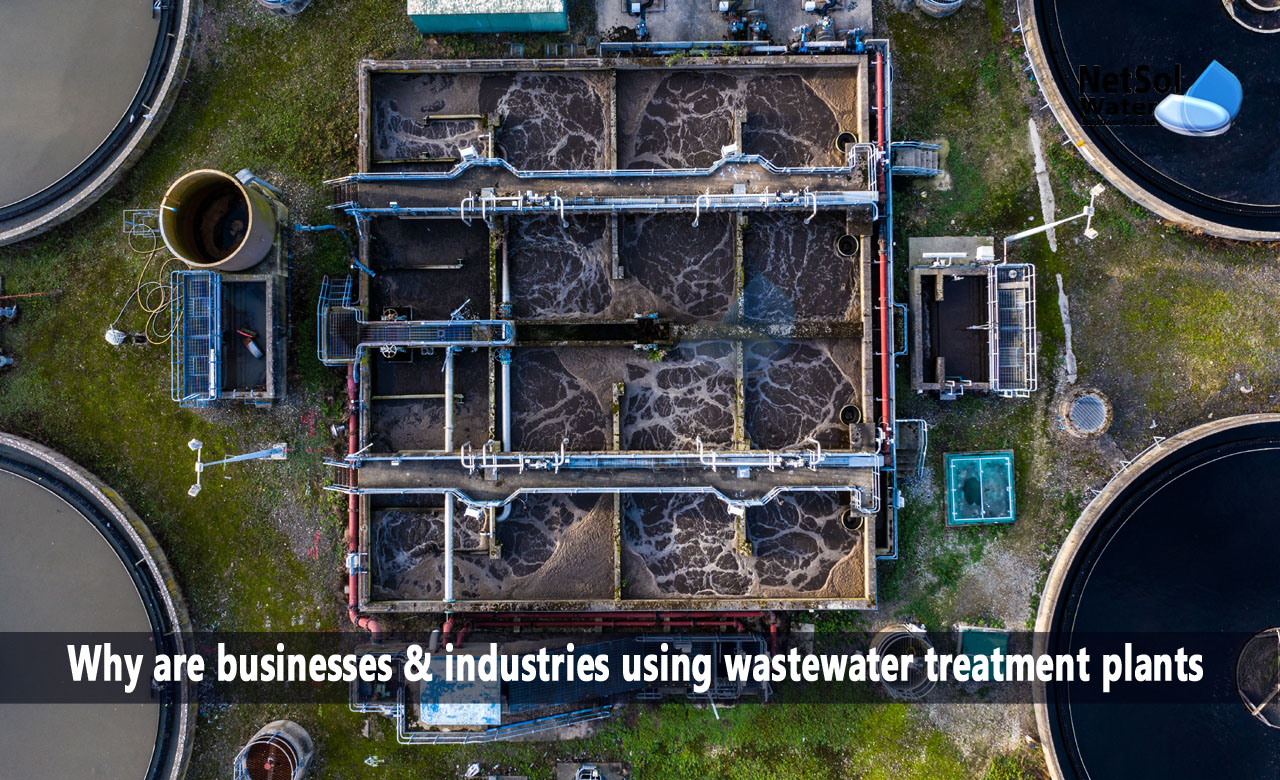Sewage treatment facilities, sometimes referred to as wastewater treatment facilities, are essential for the safe and ethical disposal of commercial and industrial wastewater. Industrial wastewater is treated in wastewater treatment facilities using a combination of physical, chemical, and biological methods to remove impurities.
Filtration, sedimentation, and biological treatment are a few examples of these procedures. The kind and quantity of contaminants present in the wastewater will determine the specific treatment techniques, which are employed.
Why are businesses & industries using wastewater treatment plants?
The fact that wastewater treatment facilities aid in preventing environmental pollution, is one of its key advantages for industrial settings. Treatment facilities can contribute to the preservation of ecosystems and water resources, by eliminating toxins from industrial waste water. This can assist avoid expensive clean-up projects and legal action, in addition to helping the ecosystem be preserved.
While, discussing the value of wastewater treatment plants for industries, keep the following points in mind:
· protection of the environment
· adherence to regulations
· recovery of resources
· lowering hazards to public health
· aquatic life protection
· reusing water and conserving it
· savings from climate change adaption
Let’s have a look at them in detail:
· Environmental protection
By eliminating pollutants from industrial wastewater before it is released into the environment, wastewater treatment plants aid in environmental protection. This aids in preventing soil, water, and air contamination, which can have detrimental effects on human and animal health.
· Compliance
When it comes to the disposal of wastewater, industries must adhere to tight laws. By eliminating pollutants and other contaminants from their wastewater, wastewater treatment plants assist industry in adhering to these standards.
Resources that can be recovered from industrial wastewater include nutrients and energy. The treatment facility can collect and reuse these resources, which lowers the overall cost of wastewater disposal.
· Minimize public health risks and aquatic life
Industrial wastewater can contain dangerous germs, chemicals, and heavy metals that, if released into the environment untreated, can cause major health issues. Wastewater treatment plants aid in the removal of harmful pollutants, lowering the risk to the general public's health.
Aquatic life is significantly less likely to be harmed by treated wastewater, which is crucial for preserving biodiversity and safeguarding ecosystems.
Overall, industrial wastewater treatment plants are essential for safeguarding the environment, people's health, and aquatic life. They also make it possible for businesses to adhere to rules, and cut back on overall waste disposal expenses.
· Water recycling and conservation
Recycled wastewater can be used for industrial processes, cooling towers, irrigation, and other uses. This can ease the burden on drinking water supplies, conserve water resources in areas with a shortage, and lessen the industry's overall water footprint.
· Climate change adaptation
Recharged groundwater and surface water resources can be created using treated wastewater, increasing supplies for agriculture and other uses. By doing so, it may be possible to lessen the impact of climate change-related phenomena including droughts, floods, and water scarcity.
· Savings
For the industry, investing in a quality wastewater treatment plant could result in long-term savings. The facility can reuse treated water, which decreases the need to buy new water and the amount of water that needs to be treated or disposed of, which lowers the cost of disposal.
Conclusion
Wastewater from industrial processes is frequently quite large and can contain a wide range of contaminants, including organic material, chemicals, and heavy metals. This wastewater can significantly impact the environment if it is not adequately managed, including polluting surface and ground water supplies.
Wastewater treatment plants can help enterprises comply with requirements, while also preserving the environment. Industries can prevent fines and penalties for non-compliance by purifying their wastewater.
Overall, because they aid in the purification of industrial wastewater and the prevention of environmental pollution, wastewater treatment plants are crucial for all enterprises. They are crucial for ensuring regulatory compliance, as well as for lowering cleaning expenses and environmental fines, as well as for preventing environmental dangers and serious health risks, brought on by industrial wastewater.
Do you require high-quality Wastewater Treatment Plants for your industries?
If you're looking for a reputable business to do manufacture and yearly maintenance of your wastewater treatment plants, go no further than Netsol Water. We have many years of experience in this industry, and are equipped to handle any task related to water and wastewater treatment. Call us at +91 9650608473 or use our online platform to reach out to us right now.



